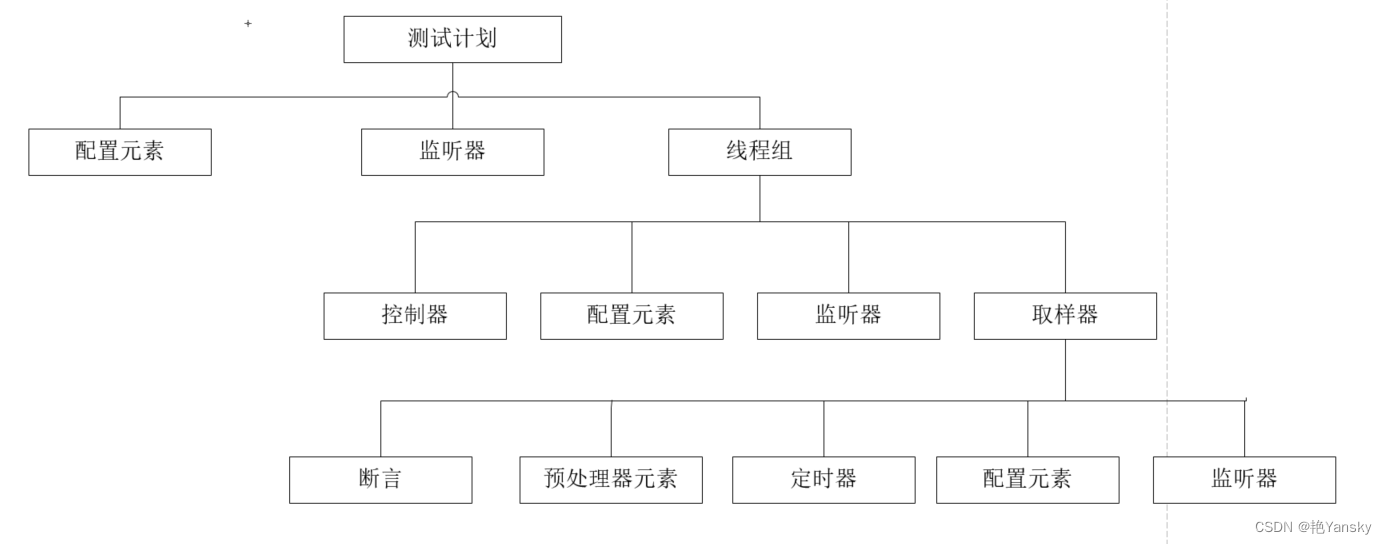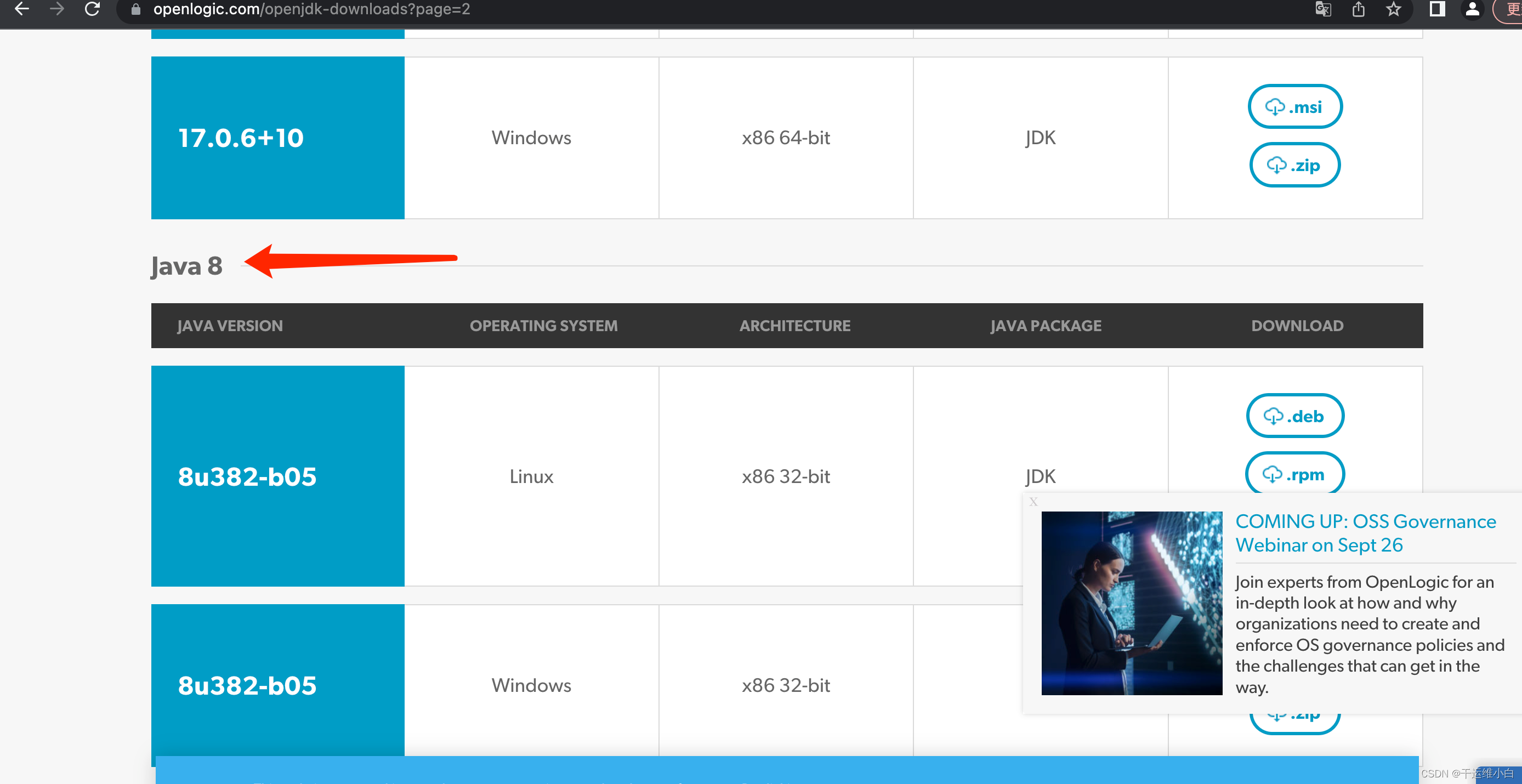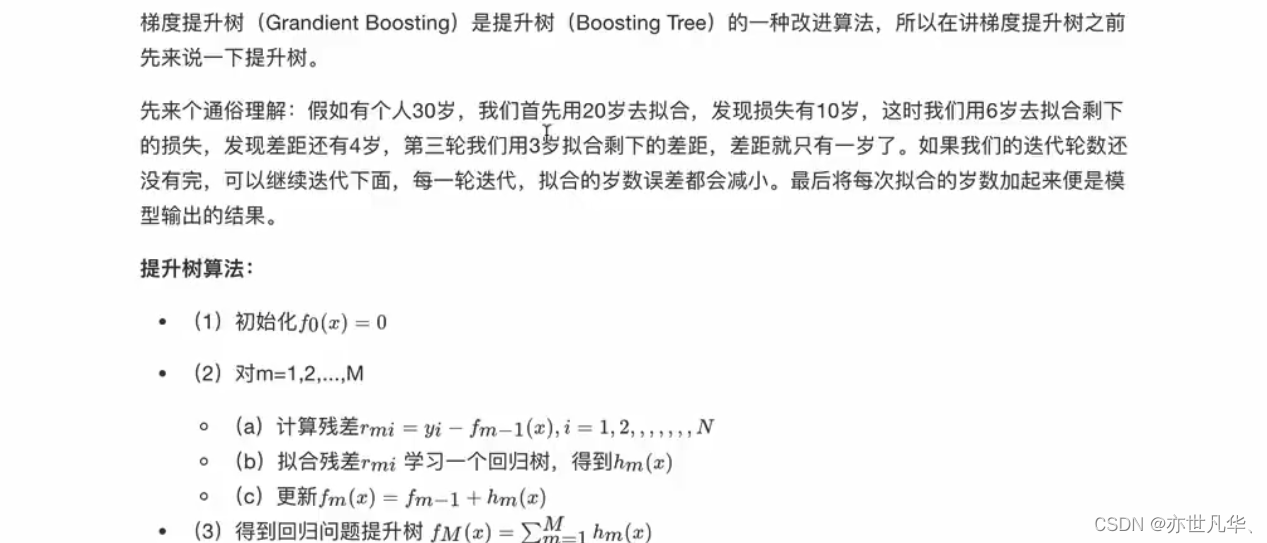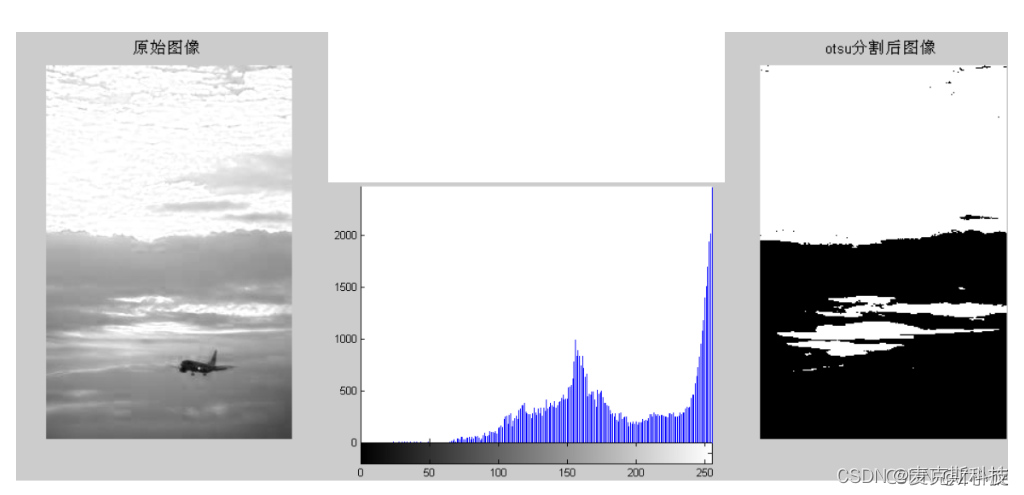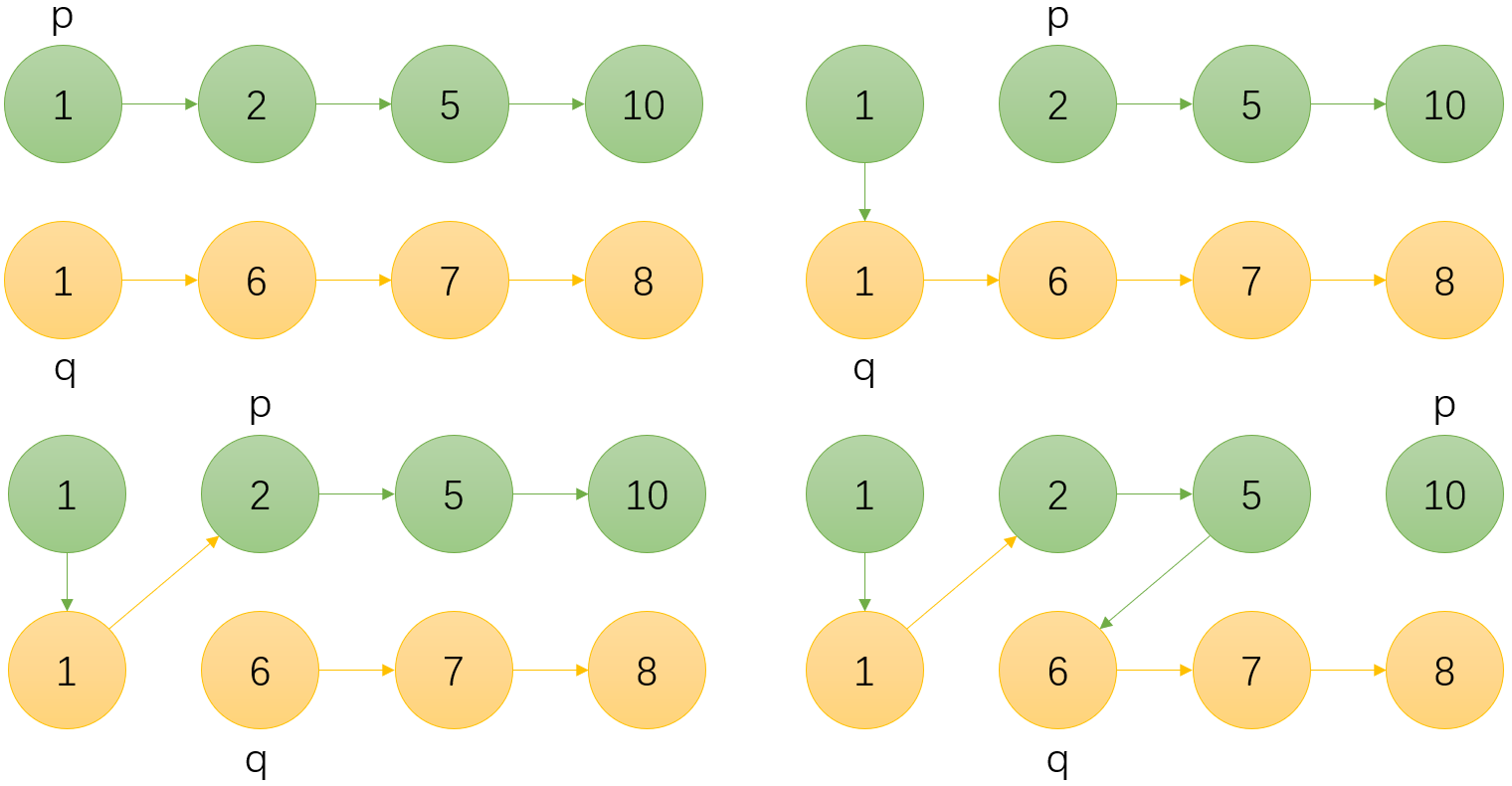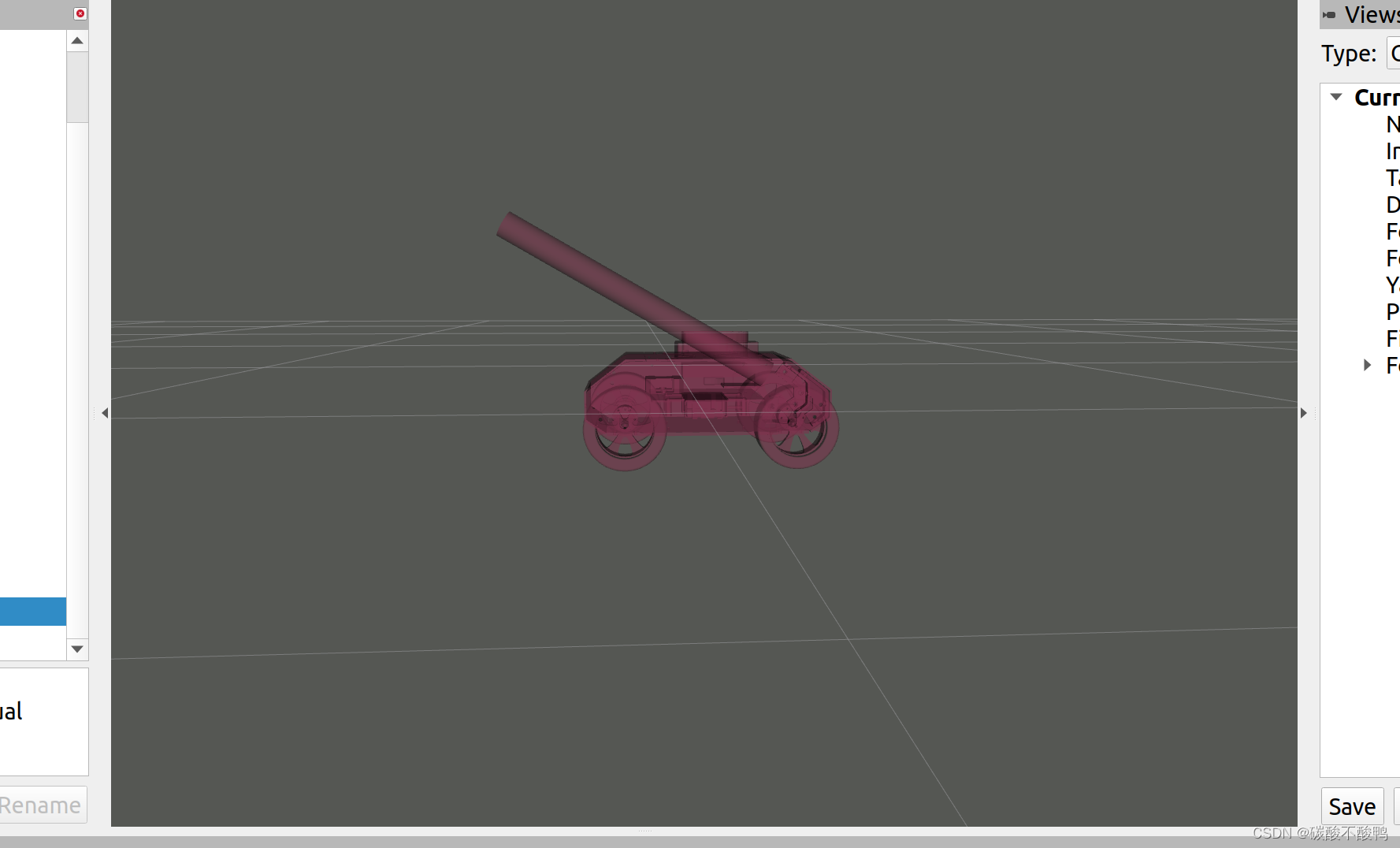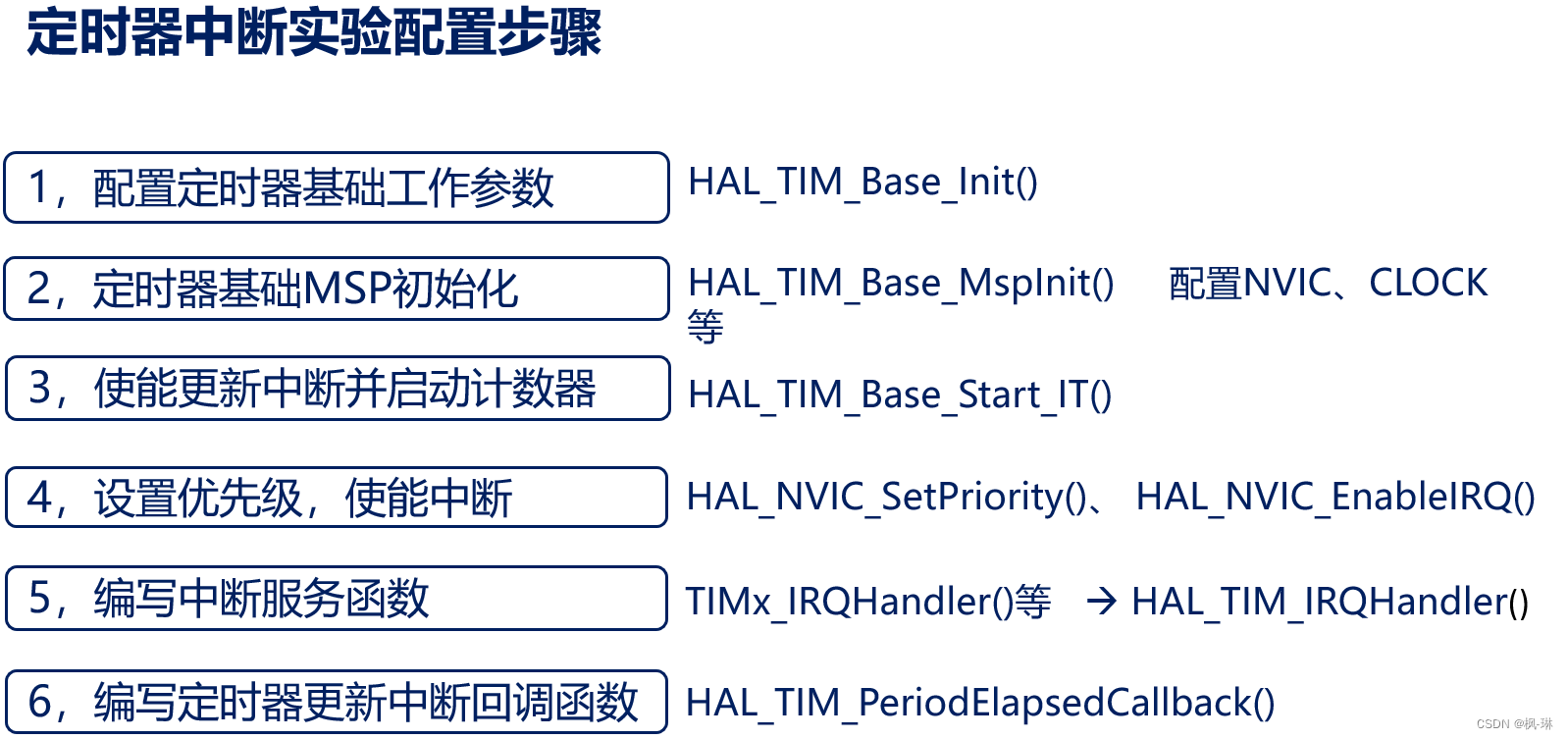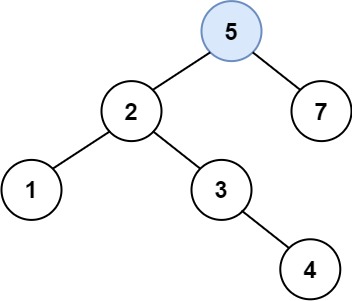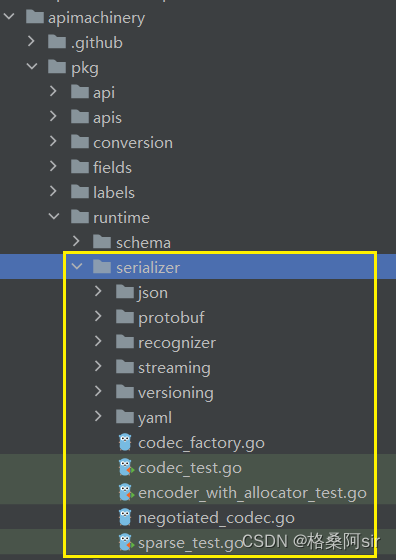简言
parseChildren函数是在baseParse函数中作为createRoot函数的子节点参数传入的,今天来探索下parseChildren函数。
parseChildren在 compiler-core/src/parse.ts文件内。
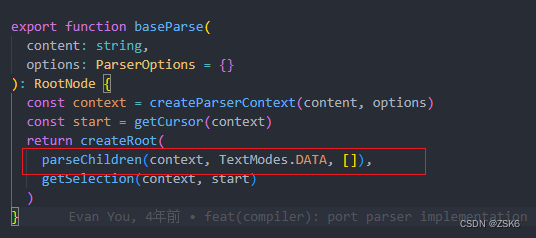
parseChildren
这个函数就是用来解析模板字符串内容的 ,里面有个while循环以栈的形式不断读取模板字符串进行解析,直到解析完毕,然后进行空白处理并返回对应的节点数据。
传参:
- context ---- 解析上下文(createParserContext函数根据模板字符串和配置得到的)。
- mode ---- 文本模式 。vue将模板字符串分为5个类型(见下面:DATA代表普通的元素标签,RCDATA代表textarea标签,RAWTEXT代表文本)。
- ancestors — 祖先节点,类型为元素节点数组。
文本模式:
export const enum TextModes {
// | Elements | Entities | End sign | Inside of
DATA, // | ✔ | ✔ | End tags of ancestors |
RCDATA, // | ✘ | ✔ | End tag of the parent | <textarea>
RAWTEXT, // | ✘ | ✘ | End tag of the parent | <style>,<script>
CDATA,
ATTRIBUTE_VALUE
}
源码
function parseChildren(
context: ParserContext,
mode: TextModes,
ancestors: ElementNode[]
): TemplateChildNode[] {
const parent = last(ancestors)
const ns = parent ? parent.ns : Namespaces.HTML
const nodes: TemplateChildNode[] = []
while (!isEnd(context, mode, ancestors)) {
__TEST__ && assert(context.source.length > 0)
const s = context.source
let node: TemplateChildNode | TemplateChildNode[] | undefined = undefined
if (mode === TextModes.DATA || mode === TextModes.RCDATA) {
if (!context.inVPre && startsWith(s, context.options.delimiters[0])) {
// '{{'
node = parseInterpolation(context, mode)
} else if (mode === TextModes.DATA && s[0] === '<') {
// https://html.spec.whatwg.org/multipage/parsing.html#tag-open-state
if (s.length === 1) {
emitError(context, ErrorCodes.EOF_BEFORE_TAG_NAME, 1)
} else if (s[1] === '!') {
// https://html.spec.whatwg.org/multipage/parsing.html#markup-declaration-open-state
if (startsWith(s, '<!--')) {
node = parseComment(context)
} else if (startsWith(s, '<!DOCTYPE')) {
// Ignore DOCTYPE by a limitation.
node = parseBogusComment(context)
} else if (startsWith(s, '<![CDATA[')) {
if (ns !== Namespaces.HTML) {
node = parseCDATA(context, ancestors)
} else {
emitError(context, ErrorCodes.CDATA_IN_HTML_CONTENT)
node = parseBogusComment(context)
}
} else {
emitError(context, ErrorCodes.INCORRECTLY_OPENED_COMMENT)
node = parseBogusComment(context)
}
} else if (s[1] === '/') {
// https://html.spec.whatwg.org/multipage/parsing.html#end-tag-open-state
if (s.length === 2) {
emitError(context, ErrorCodes.EOF_BEFORE_TAG_NAME, 2)
} else if (s[2] === '>') {
emitError(context, ErrorCodes.MISSING_END_TAG_NAME, 2)
advanceBy(context, 3)
continue
} else if (/[a-z]/i.test(s[2])) {
emitError(context, ErrorCodes.X_INVALID_END_TAG)
parseTag(context, TagType.End, parent)
continue
} else {
emitError(
context,
ErrorCodes.INVALID_FIRST_CHARACTER_OF_TAG_NAME,
2
)
node = parseBogusComment(context)
}
} else if (/[a-z]/i.test(s[1])) {
node = parseElement(context, ancestors)
// 2.x <template> with no directive compat
if (
__COMPAT__ &&
isCompatEnabled(
CompilerDeprecationTypes.COMPILER_NATIVE_TEMPLATE,
context
) &&
node &&
node.tag === 'template' &&
!node.props.some(
p =>
p.type === NodeTypes.DIRECTIVE &&
isSpecialTemplateDirective(p.name)
)
) {
__DEV__ &&
warnDeprecation(
CompilerDeprecationTypes.COMPILER_NATIVE_TEMPLATE,
context,
node.loc
)
node = node.children
}
} else if (s[1] === '?') {
emitError(
context,
ErrorCodes.UNEXPECTED_QUESTION_MARK_INSTEAD_OF_TAG_NAME,
1
)
node = parseBogusComment(context)
} else {
emitError(context, ErrorCodes.INVALID_FIRST_CHARACTER_OF_TAG_NAME, 1)
}
}
}
if (!node) {
node = parseText(context, mode)
}
if (isArray(node)) {
for (let i = 0; i < node.length; i++) {
pushNode(nodes, node[i])
}
} else {
pushNode(nodes, node)
}
}
// Whitespace handling strategy like v2
let removedWhitespace = false
if (mode !== TextModes.RAWTEXT && mode !== TextModes.RCDATA) {
const shouldCondense = context.options.whitespace !== 'preserve'
for (let i = 0; i < nodes.length; i++) {
const node = nodes[i]
if (node.type === NodeTypes.TEXT) {
if (!context.inPre) {
if (!/[^\t\r\n\f ]/.test(node.content)) {
const prev = nodes[i - 1]
const next = nodes[i + 1]
// Remove if:
// - the whitespace is the first or last node, or:
// - (condense mode) the whitespace is between twos comments, or:
// - (condense mode) the whitespace is between comment and element, or:
// - (condense mode) the whitespace is between two elements AND contains newline
if (
!prev ||
!next ||
(shouldCondense &&
((prev.type === NodeTypes.COMMENT &&
next.type === NodeTypes.COMMENT) ||
(prev.type === NodeTypes.COMMENT &&
next.type === NodeTypes.ELEMENT) ||
(prev.type === NodeTypes.ELEMENT &&
next.type === NodeTypes.COMMENT) ||
(prev.type === NodeTypes.ELEMENT &&
next.type === NodeTypes.ELEMENT &&
/[\r\n]/.test(node.content))))
) {
removedWhitespace = true
nodes[i] = null as any
} else {
// Otherwise, the whitespace is condensed into a single space
node.content = ' '
}
} else if (shouldCondense) {
// in condense mode, consecutive whitespaces in text are condensed
// down to a single space.
node.content = node.content.replace(/[\t\r\n\f ]+/g, ' ')
}
} else {
// #6410 normalize windows newlines in <pre>:
// in SSR, browsers normalize server-rendered \r\n into a single \n
// in the DOM
node.content = node.content.replace(/\r\n/g, '\n')
}
}
// Remove comment nodes if desired by configuration.
else if (node.type === NodeTypes.COMMENT && !context.options.comments) {
removedWhitespace = true
nodes[i] = null as any
}
}
if (context.inPre && parent && context.options.isPreTag(parent.tag)) {
// remove leading newline per html spec
// https://html.spec.whatwg.org/multipage/grouping-content.html#the-pre-element
const first = nodes[0]
if (first && first.type === NodeTypes.TEXT) {
first.content = first.content.replace(/^\r?\n/, '')
}
}
}
return removedWhitespace ? nodes.filter(Boolean) : nodes
}
下面的流程只描述大致的流程信息,若有误请联系作者改正。
流程:
- 创建nodes数组用来承载解析的数据,进入while循环。
- 执行isEnd函数判断是否读取完毕,是则跳出while循环。
- 创建node用于承载此次循环解析的数据,并获取当前读取的内容。
- TextModes.DATA和TextModes.RCDATA下进行特定的分类解析。
- 若是是否是以{{开头,parseInterpolation函数进行文本插值解析。
- 若是TextModes.DATA下且以<开头,进行标签解析,进入标签类型的解析。
- 若以<开头且下一个字符是!,说明是注释标签、文档声明标签、<![CDATA[]]>标签(忽略xml的转义);分别进行对应的解析。
- 若以<开头且下一个字符是/,有可能是闭合标签,则进行parseTag函数标签解析。
- 若以<开头且下一个字符是a-z任意字符(不分大小写),进行parseElement函数解析。
- 若node还没值,执行parseText函数按文本进行解析。
- 将node的值添加到nodes中,执行第2步
- 将nodes值按照配置的空白策略进行空白处理
- 返回nodes。
使用到的一些函数
只挑选用到的一些函数进行分析。
isEnd
判断是否读取完毕。
参考:
- startsWith函数是 以什么开头。
- startsWithEndTagOpen 是否是完整的相匹配的闭合标签。
true的情况: - TextModes.DATA下以</开头且是匹配的闭合标签,返回true
- TextModes.RCDATA(textarea)和TextModes.RAWTEXT(文本)下,存在父节点,且匹配父节点的闭合标签,返回true。
- TextModes.CDATA(xml中的忽略转义的写法)下,以]]>开头,返回true。
- s 为假值,返回true
function isEnd(
context: ParserContext,
mode: TextModes,
ancestors: ElementNode[]
): boolean {
const s = context.source
switch (mode) {
case TextModes.DATA:
if (startsWith(s, '</')) {
// TODO: probably bad performance
for (let i = ancestors.length - 1; i >= 0; --i) {
if (startsWithEndTagOpen(s, ancestors[i].tag)) {
return true
}
}
}
break
case TextModes.RCDATA:
case TextModes.RAWTEXT: {
const parent = last(ancestors)
if (parent && startsWithEndTagOpen(s, parent.tag)) {
return true
}
break
}
case TextModes.CDATA:
if (startsWith(s, ']]>')) {
return true
}
break
}
return !s
}
parseInterpolation
解析文本插值内容,也就是{{表达式}}这种,最后返回文本插值类型的结构数据节点。
参考:
- parseTextData ---- 处理 {{表达式}}内的表达式。
- getCursor — 获取当前读取位置
- advanceBy — 改变上下文中的source
- advancePositionWithMutation ---- 修正读取位置信息描述的函数。
文本插值大家都知道,它是vue的数据在模板显示的主要方式之一,里面可以填表达式或者静态字符串,所以{{}}里面的内容使用parseTextData函数解析,这个函数要返回文本字符串,要么返回一个解析好后的html实体。
function parseInterpolation(
context: ParserContext,
mode: TextModes
): InterpolationNode | undefined {
const [open, close] = context.options.delimiters
__TEST__ && assert(startsWith(context.source, open))
const closeIndex = context.source.indexOf(close, open.length)
if (closeIndex === -1) {
emitError(context, ErrorCodes.X_MISSING_INTERPOLATION_END)
return undefined
}
const start = getCursor(context)
advanceBy(context, open.length)
const innerStart = getCursor(context)
const innerEnd = getCursor(context)
const rawContentLength = closeIndex - open.length
const rawContent = context.source.slice(0, rawContentLength)
const preTrimContent = parseTextData(context, rawContentLength, mode)
const content = preTrimContent.trim()
const startOffset = preTrimContent.indexOf(content)
if (startOffset > 0) {
advancePositionWithMutation(innerStart, rawContent, startOffset)
}
const endOffset =
rawContentLength - (preTrimContent.length - content.length - startOffset)
advancePositionWithMutation(innerEnd, rawContent, endOffset)
advanceBy(context, close.length)
return {
type: NodeTypes.INTERPOLATION,
content: {
type: NodeTypes.SIMPLE_EXPRESSION,
isStatic: false,
// Set `isConstant` to false by default and will decide in transformExpression
constType: ConstantTypes.NOT_CONSTANT,
content,
loc: getSelection(context, innerStart, innerEnd)
},
loc: getSelection(context, start)
}
}
parseComment
解析注释的函数,返回注释类型的结构数据节点。
参考:
- emitError 触发报错的函数。
- getSelection 返回包含目标内容的位置信息对象。
function parseComment(context: ParserContext): CommentNode {
__TEST__ && assert(startsWith(context.source, '<!--'))
const start = getCursor(context)
let content: string
// Regular comment.
const match = /--(\!)?>/.exec(context.source)
if (!match) {
content = context.source.slice(4)
advanceBy(context, context.source.length)
emitError(context, ErrorCodes.EOF_IN_COMMENT)
} else {
if (match.index <= 3) {
emitError(context, ErrorCodes.ABRUPT_CLOSING_OF_EMPTY_COMMENT)
}
if (match[1]) {
emitError(context, ErrorCodes.INCORRECTLY_CLOSED_COMMENT)
}
content = context.source.slice(4, match.index)
// Advancing with reporting nested comments.
const s = context.source.slice(0, match.index)
let prevIndex = 1,
nestedIndex = 0
while ((nestedIndex = s.indexOf('<!--', prevIndex)) !== -1) {
advanceBy(context, nestedIndex - prevIndex + 1)
if (nestedIndex + 4 < s.length) {
emitError(context, ErrorCodes.NESTED_COMMENT)
}
prevIndex = nestedIndex + 1
}
advanceBy(context, match.index + match[0].length - prevIndex + 1)
}
return {
type: NodeTypes.COMMENT,
content,
loc: getSelection(context, start)
}
}
parseElement
解析元素内容的函数,返回元素类型的结构数据节点。
一个普通的元素包含: 开标签 + 子内容 + 闭标签;所以parseElement就是按这个顺序处理的,parseTag处理标签,parseChildren函数处理子内容。
参考:
- parseTag — 解析标签的函数。
- checkCompatEnabled — 判断是否可以进行兼容处理。
function parseElement(
context: ParserContext,
ancestors: ElementNode[]
): ElementNode | undefined {
__TEST__ && assert(/^<[a-z]/i.test(context.source))
// Start tag.
const wasInPre = context.inPre
const wasInVPre = context.inVPre
const parent = last(ancestors)
const element = parseTag(context, TagType.Start, parent)
const isPreBoundary = context.inPre && !wasInPre
const isVPreBoundary = context.inVPre && !wasInVPre
if (element.isSelfClosing || context.options.isVoidTag(element.tag)) {
// #4030 self-closing <pre> tag
if (isPreBoundary) {
context.inPre = false
}
if (isVPreBoundary) {
context.inVPre = false
}
return element
}
// Children.
ancestors.push(element)
const mode = context.options.getTextMode(element, parent)
const children = parseChildren(context, mode, ancestors)
ancestors.pop()
// 2.x inline-template compat
if (__COMPAT__) {
const inlineTemplateProp = element.props.find(
p => p.type === NodeTypes.ATTRIBUTE && p.name === 'inline-template'
) as AttributeNode
if (
inlineTemplateProp &&
checkCompatEnabled(
CompilerDeprecationTypes.COMPILER_INLINE_TEMPLATE,
context,
inlineTemplateProp.loc
)
) {
const loc = getSelection(context, element.loc.end)
inlineTemplateProp.value = {
type: NodeTypes.TEXT,
content: loc.source,
loc
}
}
}
element.children = children
// End tag.
if (startsWithEndTagOpen(context.source, element.tag)) {
parseTag(context, TagType.End, parent)
} else {
emitError(context, ErrorCodes.X_MISSING_END_TAG, 0, element.loc.start)
if (context.source.length === 0 && element.tag.toLowerCase() === 'script') {
const first = children[0]
if (first && startsWith(first.loc.source, '<!--')) {
emitError(context, ErrorCodes.EOF_IN_SCRIPT_HTML_COMMENT_LIKE_TEXT)
}
}
}
element.loc = getSelection(context, element.loc.start)
if (isPreBoundary) {
context.inPre = false
}
if (isVPreBoundary) {
context.inVPre = false
}
return element
}
parseText
解析文本内容,返回文本类型的结构数据节点。
function parseText(context: ParserContext, mode: TextModes): TextNode {
__TEST__ && assert(context.source.length > 0)
const endTokens =
mode === TextModes.CDATA ? [']]>'] : ['<', context.options.delimiters[0]]
let endIndex = context.source.length
for (let i = 0; i < endTokens.length; i++) {
const index = context.source.indexOf(endTokens[i], 1)
if (index !== -1 && endIndex > index) {
endIndex = index
}
}
__TEST__ && assert(endIndex > 0)
const start = getCursor(context)
const content = parseTextData(context, endIndex, mode)
return {
type: NodeTypes.TEXT,
content,
loc: getSelection(context, start)
}
}
parseBogusComment
解析伪注释内容,返回注释类型的结构数据节点。
一些内容会被这个函数当作注释解析,并会给出警告信息。
function parseBogusComment(context: ParserContext): CommentNode | undefined {
__TEST__ && assert(/^<(?:[\!\?]|\/[^a-z>])/i.test(context.source))
const start = getCursor(context)
const contentStart = context.source[1] === '?' ? 1 : 2
let content: string
const closeIndex = context.source.indexOf('>')
if (closeIndex === -1) {
content = context.source.slice(contentStart)
advanceBy(context, context.source.length)
} else {
content = context.source.slice(contentStart, closeIndex)
advanceBy(context, closeIndex + 1)
}
return {
type: NodeTypes.COMMENT,
content,
loc: getSelection(context, start)
}
}
结语
上篇:【vue3】vue3源码探索之旅:compiler-core(一)
